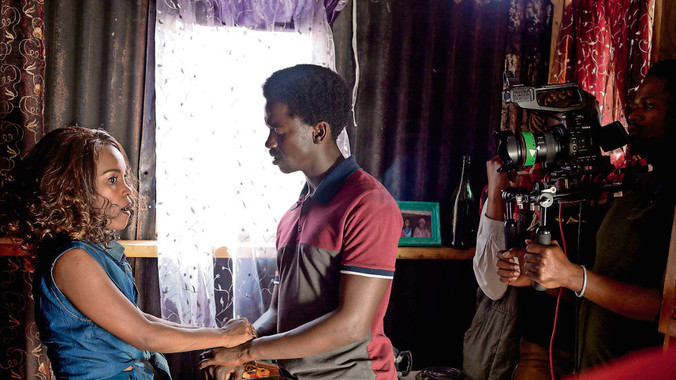These serial dramas are meant to run for a finite period, but are such a hit among viewers that the temptation to extend them is hard to resist, writes Katlego Mhwanazi.
Each weekday, local television audiences can savour a buffet of South African stories on channels that have latched on to the telenovela format. As a result, prime-time slots such as 7.30pm, 8pm, 8.30pm and 9pm have become highly contested spaces, placing viewers in a tug-of-war between e.tv, Mzansi Magic and the SABC channels.
The ramped-up competition among telenovelas – serial dramas that usually have a predetermined number of episodes – has given writers the opportunity to tell high-quality local stories using talented actors.
Local telenovelas have also grabbed the attention of South African theatre veterans such as John Kani and Mbongeni Ngema, who have returned to television after years of operating under the mass media radar.
Alex Hlabangane, executive producer of Gold Diggers, believes South Africa can’t truly refer to the local shows in this vein as telenovelas.
‘Hungry for great stories’
“Our South African audiences are so hungry for great stories. When a great story hits our screens, the channels notice the amount of publicity a show could have and then shows stop being telenovelas and become long-running [series], which is not terrible for the industry.
“But for it to be a true reflection of a telenovela, the story needs to come to an end,” says Hlabangane.
‘Stories that reflect their lives’
Distinguished television producer Duma Ka Ndlovu agrees. He is the creator and producer of popular SABC2 soapie Muvhango. He’s also executive producer of the SABC1 telenovela Uzalo, which drew more than five million viewers when it debuted in June, knocking long-running soapie Generations from the number one spot. “My approach to Uzalo, from day one, was not to look at it as a telenovela but as a soapie,” says Ndlovu.
Uzalo is set to land a three-year contract with the SABC and, with such a commitment, Ndlovu hopes the show will run for longer than originally planned, just as Generations and Muvhango have.
Ndlovu says South Africans have a unique way of telling stories. “South Africans want stories that reflect their lives. But they don’t want stories that look down on them or patronise them. They want people who understand black life, township life and African life; someone who gives them a sense of pride.”
This country also has its own spin on the soapie format. Our soap operas air in prime-time slots in the evening, whereas in the US soapies are shown at midday, with the initial target market being housewives.
“In South Africa we take a prime-time drama and call it a soapie because we use the ingredients of a soapie, a telenovela and a thriller to tell a story,” says Ndlovu.
According to Ditsele, his production team has a great partnership with Mzansi Magic, where his work is aired. “Mzansi Magic has discussions with their production companies about the possibility of extending the shows. The channel very often says if this isn’t working, let’s let it go. So the channel is not pushy at all.”
When the telenovela storylines are extended, he says, the writers are faced with challenge of “digging deep” to come up with plots. “As a writer you now have to reimagine things that you were set to end after a year but are now set to continue.”
With local audiences’ increasing appetite for continuity, actors and writers are in demand now more than ever. Hlabangane believes the country’s production industry is still not in a position where it can make tons of money. For that reason, more money should be invested in TV shows.
“The interesting thing about the sudden upheaval of local content is we didn’t have to toyi-toyi, march, to ask for it. The time was right. For the last two to three years South African spaces have been providing a lot of local content.
“A lot of South African stories are being told by our broadcasters and that is exciting,” says Ndlovu.
See full report by Katlego Mhwanazi in Mail & Guardian
PHOTO CREDIT: On the Gold Diggers set in Joburg. (Photo: Oupa Nkosi)






